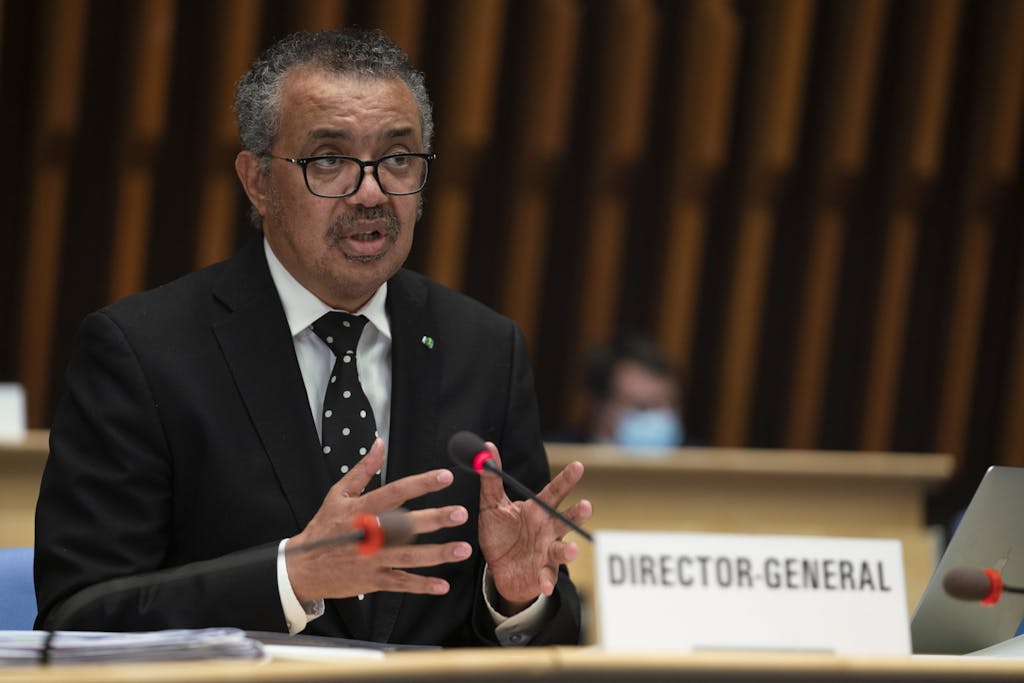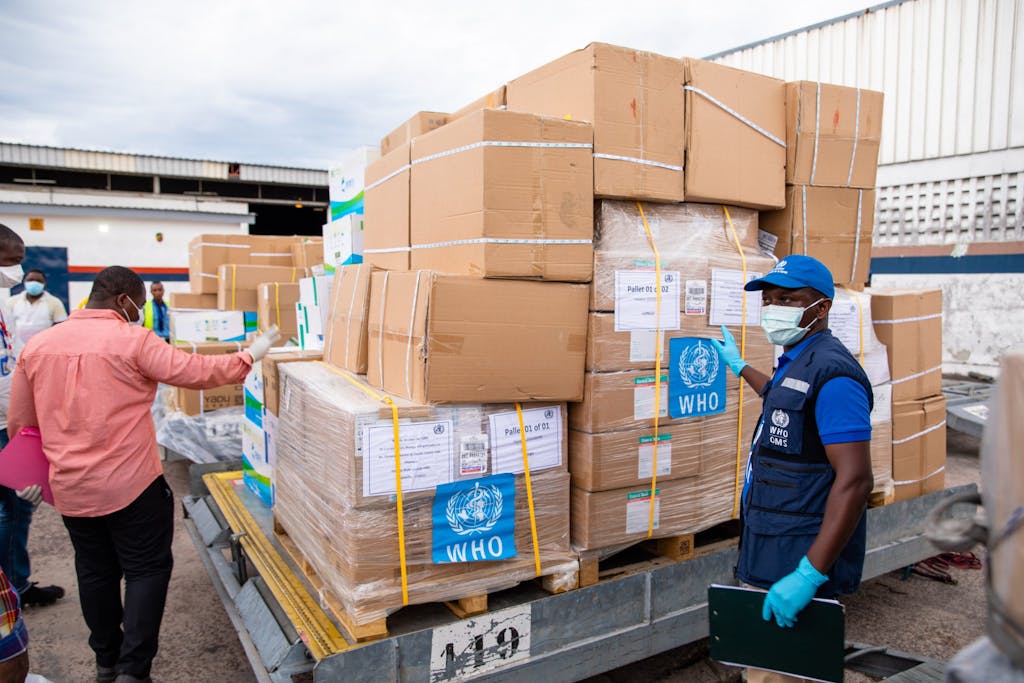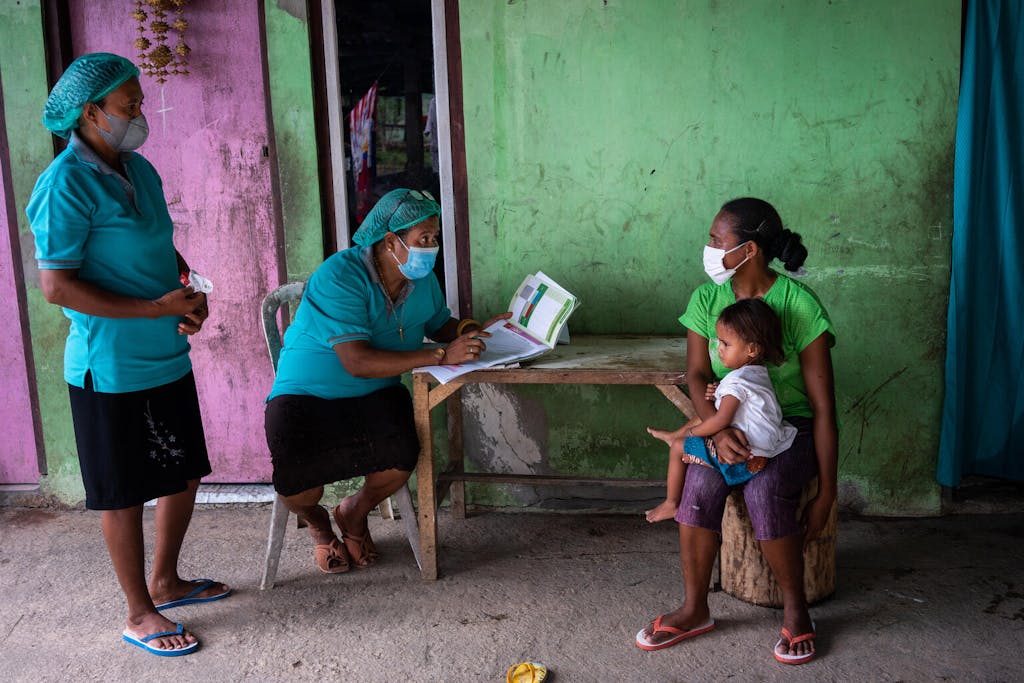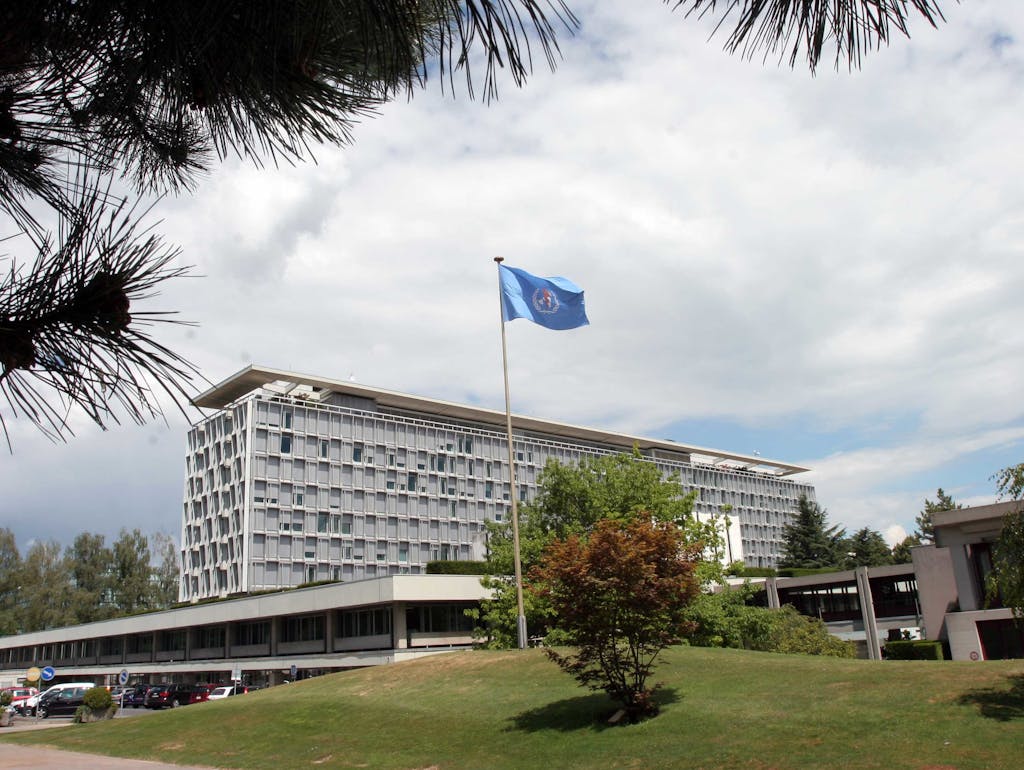On the eve of the two-year anniversary of the World Health Organization’s declaration of the COVID-19 crisis as a “public health emergency of international concern,” its Executive Board met in hybrid fashion in Geneva for its semiannual meeting. Our Vice President for Global Health Strategy, Kate Dodson, shares her takeaways from a week of debate on future leadership and governance of the world’s preeminent international public health organization.
Heading into Year Three of the COVID-19 pandemic amid surging cases fueled by the Omicron variant and persistent gaps in global vaccination, the Executive Board of the World Health Organization (WHO) met during the last week of January to debate how to strengthen the organization, defeat the pandemic, and foster a resilient recovery to meet the global goal of #HealthforAll.
The Executive Board comprises 34 Member States of WHO, and its primary purpose is to set the agenda for the annual World Health Assembly meeting of all 194 Member States, which takes place each May. The topics and challenges included in the agenda of this 150th Executive Board meeting reflect the breadth and importance of health challenges that the world is facing.
Here are my top four takeaways:
1. Leadership of WHO secured
Though the move was widely anticipated, the Executive Board unanimously voted to nominate Dr. Tedros Adhanom Ghebreyesus for a second term as Director-General. With nominations due last fall, it was clear that Dr. Tedros did not face any competition for the post. Nevertheless, it’s an important signal of trust among Member States for his leadership, which has been marked largely by the pandemic over the past two years. The Executive Board’s nomination will go to the World Health Assembly in May; if elected, Dr. Tedros will be invited to serve another five-year term.

WHO Director-General Dr. Tedros Adhanom Ghebreyesus addresses the 74th World Health Assembly. Photo: WHO/ Christopher Black
2. Incremental signs of progress in strengthening collective capacities for future health threats
The Executive Board was not expected to make definitive decisions regarding reforms of WHO’s work on health emergencies, but it did make significant progress toward opening pathways for conclusive decisions to be made in the coming months. The Board approved a draft decision introduced by the United States to strengthen the International Health Regulations (IHR), the only international legal framework on health threats. The Board also took steps to advance formation of a standing committee under the Executive Board on health emergencies. As proposed by Austria, this committee would be designed to more closely oversee WHO’s emergency response efforts after a public health emergency of international concern is declared and to try to narrow the gap between WHO’s technical guidance and normative leadership during an emergency, as well as Member States’ adherence to best practice guidance. Member States spoke about the need for complementarity in all reform discussions, including the future work of the Intergovernmental Negotiating Body (INB), which will meet this spring to start negotiating a potential new pandemic accord.

COVID-19 medical supplies including protective personal equipment, thermometers and respirators arrive in Brazzaville, Republic of Congo. Photo: Gregor Donaldson/ WHO
3. The imperative of resilient health systems to tackle all health challenges and foster Health for All
The Executive Board did not focus exclusively on pandemics and global health emergencies. WHO’s work also includes normative guidance and support to Member States on a range of public health issues, from polio eradication to cancer and other noncommunicable diseases. The Board discussed dozens of these issues, with a clear call for strengthening primary care, prevention, and public health measures as building blocks toward achieving universal health coverage. With countries radically off-track because of the pandemic, it will take a great deal of effort to reinvigorate progress on these goals.

Health workers from the Kamboja IVc Health Post visit families in Sikumana Village to provide health services and encourage them to bring their children for vaccination in Kupang, East Nusa Tenggara Province, Indonesia, on November 3, 2021. Photo: Fauzan Ijazah/ UNICEF
4. Hope is still alive for fixing WHO’s broken financing
WHO has become a household name over the past two years, guiding the world’s response to the worst health crisis in a century. Yet despite the enormity of WHO’s mandate, only 16% of its base budget each year can be relied upon via annual dues from Member States. What’s more, an overreliance on heavily earmarked, voluntary, and short-term funding has left more than 25% of WHO’s staff on short-term contracts, further compromising its ability to meet its mandate from Member States. In response, the UN Foundation sent a letter to Executive Board leadership on behalf of over 60 global organizations calling for robust and sustainable financing for WHO. An effort started last year by Member States to fix this broken financing was supposed to conclude at this Board meeting, but unfortunately, Member States did not reach consensus. The work will continue through the coming months, and hopes are high that a resolution will be reached at the World Health Assembly in May.

WHO is head quartered in Geneva, Switzerland. Photo: Eric Bridiers/ U.S. Mission Geneva
The decisions made — and not made — by the Executive Board in January set the stage for the 75th World Health Assembly in May, when WHO Member States will next meet. The ongoing COVID-19 pandemic is a stark reminder of how fundamental WHO’s role is in safeguarding our collective health. Building back from the current pandemic, preventing future pandemics, and accelerating progress on the Sustainable Development Goals (SDGs) will require all nations to recommit to strengthening and sustainably financing WHO so it is well equipped to meet the challenges that lie ahead.









